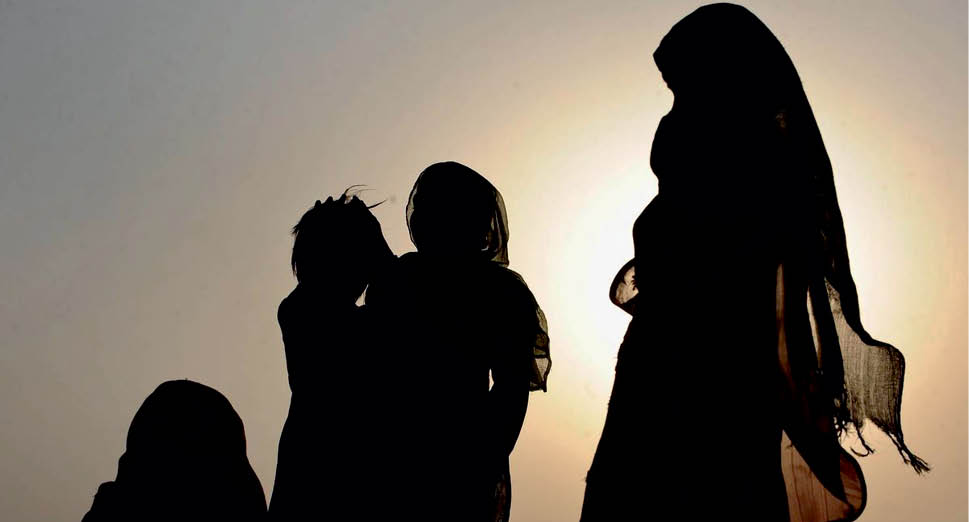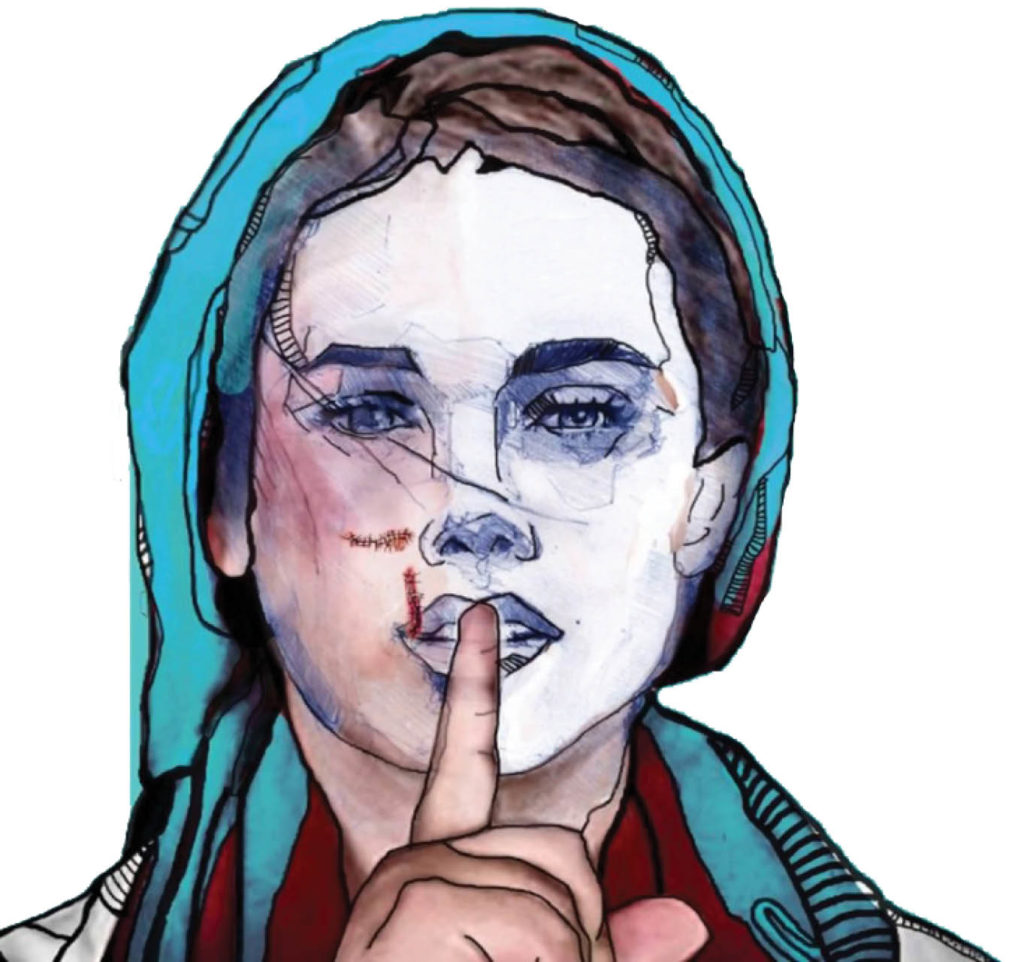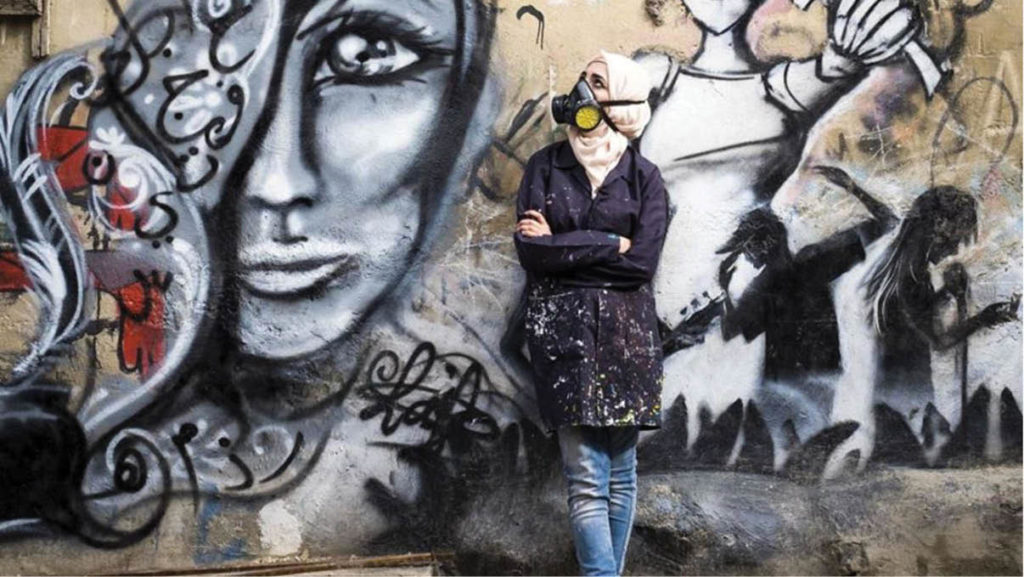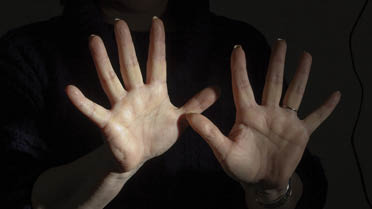Similar to the situation in many Arab countries, the population in Palestine has experienced increased family care burdens and increased family violence as a result of being quarantined in unsafe homes with violent spouses and family members. The shutdown of schools and daycare centers that entails the need to cope with the newly introduced online education, the intensified impact of patriarchy while being confined to the home, gender stereotypes and stigma, many incidents of job loss among women working in the informal sector, the unavailability or insufficiency of food and medicine, the lack of protection and support provided by governments, and the breakdown of social services are all factors that disproportionately increase the impact of the pandemic on women and girls, especially those in refugee camps. In Palestine, however, human rights violations by Israeli occupation forces exacerbate the situation. Relying on preliminary data collected in meetings with more than 30 women-led organizations and women leaders in the West Bank and Gaza, UN Women has issued a report titled “COVID-19: Gendered Impacts of the Pandemic in Palestine and Implications for Policy and Programming,” the findings of which state that the ongoing COVID-19 crisis is expected to create and aggravate existing gender-specific risks and vulnerabilities.

On the other hand, Palestinian women are at the frontlines of containing the spread of COVID-19, and it is not enough to highlight their needs and issues. There should also be a greater focus on women’s pivotal role in responding to the crisis.
Despite the limited capacities and resources available on the governmental and civil-society levels, women have been working hard to narrow the existing gaps. Since the beginning of the crisis, women’s organizations and women’s rights activists have been tackling the implications of the COVID-19 crisis on marginalized groups, especially women. This includes documenting and monitoring its impact on women and girls during quarantine and lockdown, and responding to the increased needs of women and girls, especially for protection, by promptly providing services. Another area is documenting and highlighting violations of women’s rights by Israeli occupation forces, especially with the increased restrictions and other oppressive measures imposed on all aspects of life, mainly restrictions on movement, but also arrests, house demolitions, and the targeting of women, human rights defenders, and journalists. Women in the media have played an essential role since the beginning of the crisis. They are amplifying women’s voices in the public sphere and holding accountable duty bearers to ensure the respect of women’s rights; they are showcasing the resilience of Palestinian women during the crisis and highlighting their innovative coping strategies to deal with the harsh circumstances. Another important role of the feminist media organizations is combating the online campaigns that incite against women, provoking increased violence against women and stigmatizing women and girls, in addition to increased online blackmailing and violence.
SAWA’s helpline reported an increase of 57 percent in calls related to violence compared to the pre-COVID-19 state of emergency. In a report issued on April 21, 2020, the Ministry of Social Development revealed that it had received a total of 70 cases between March 5, the beginning of the crisis, and April 10, 2020. Of these, 48 percent were received during the lockdown that started on March 22.*1
After reviewing over a hundred reports, stories, and articles about gender and COVID-19 – as I am involved in a voluntary project led by UN Women to address the implications of the COVID-19 crisis on women in the MENA region – I have noticed that many of the opportunities that are available to women, feminists, women’s rights defenders, and women’s organizations and movements have been overlooked and lack appropriate attention! It is critical to emphasize women’s achievements during this time of crisis and acknowledge their pivotal role in tackling its implications, not only on the leadership level but also on the household and societal levels. Thousands of wageworkers lost their income, and women have created initiatives and working-from-home projects to make a living for their families. More appreciation is now given to the agricultural industry, which is female-dominated, as the most affordable income-generating sector, especially in the midst of the lockdown.
Most importantly, power dynamics are changing! Aside from increased patriarchy and GBV, I also have witnessed bright sides in social norms and changing perceptions among men on masculinity. In my own personal experience, this was the first time that I saw my brother-in-law help my sister with childcare, cooking, and cleaning. His mentality changed after he was forced to stay home for such a long period (as a driver during the state of emergency, he had to stay at home for two months). When I talked to him about the reasons he engages in household chores now, he explained that he had not known how much work my sister had to do alone every day. He admitted that he used to blame her for not finishing the chores before he got home, especially because she doesn’t work outside the home. But it is not only he who helps more; my brother also sent me a video of himself while he was cooking. I was honestly shocked because he has never helped with anything in the kitchen. He said that now, not working outside the home, he enjoys helping my mother with the cooking, and he wants to learn more dishes. There are many examples of men who have changed their attitudes towards women. I met a man in An-Naqura Village in Nablus while delivering food packages, and he told me about his wife’s project. He said that she works with more than 50 women from the village after they established a women’s cooperative, and now, as he doesn’t work, his wife has become the main income generator for the family. He said that he feels very proud of her and does all the chores while she is at work.
On the service level, women’s organizations have been working hard since the onset of the crisis to provide women with the services and protection they need. This includes free 24-hour helpline services, psychosocial support, and e-counseling, as well as carrying out media interventions and awareness campaigns on GBV. All women’s organizations reported an increase in their caseloads since the start of the lockdown, and they are utilizing all the available resources to meet the increased needs. However, they are still not capable of providing some needed services because the social services on the official level have broken down, and the courts have shut down.
We must acknowledge and honor the fact that women play a crucial role in containing the spread of SARS-CoV-2 in Palestine.
Aside from the negative implications of COVID-19 on civil society organizations (CSOs), the crisis has improved some aspects of the approaches towards their engagement among CSOs, especially women’s organizations. Addressing and tackling the implications of the crisis has been done more in a collective approach, emphasizing the importance of bringing together as many organizations as possible to ensure complementary rather than competitive engagement. Funding for women’s organizations is mostly lacking because donor funding priorities have shifted towards providing humanitarian aid since the beginning of the crisis. Yet, women’s organizations have mobilized their internal resources to design and implement joint campaigns and deliver emergency responses to help affected women and girls.

Women’s organizations developed their reporting systems and focused on collecting and classifying data related to the gendered impact of COVID-19 into different themes, including women in humanitarian response activities, gender-based violence, violence against women and girls, COVID-19’s economic impact on women, and women living under occupation and the pandemic. Classified data and statistics have helped policy makers, legislators, and international organizations, including UN agencies, to better respond to the needs of Palestinian society in general, and women in particular, and to tackle the implications of the crisis on different sectors. Gender-responsive governmental policies and interventions have been developed to tackle the impact during and after the crisis. This came as a result of the influence of civil society and activists on the leadership. The Family Protection Bill has finally been presented to the cabinet to be approved, and a COVID-19 emergency response program was developed by the Ministry of Women’s Affairs and the Ministry of Social Development. Women took a leadership role in monitoring the crisis management on the state and community levels to address the gaps and help in formulating more inclusive and gender-responsive strategies.
Palestinian women leaders have also positively influenced the image of women in decision-making positions on the society level. However, the reality shows that few women are given the opportunity to contribute to the response to the crisis on the state level of decision-making processes. Palestinian women comprise 5 percent of Palestinian Central Council members, 11 percent of the Palestinian National Council, 14 percent of the Council of Ministers, and there is one woman governor out of 16 (the governor of Ramallah and Al-Bireh). Women constitute 44 percent of employees in the public sector, with only 13 percent of them holding the rank of director general or higher.*2 In Palestine, women represent nearly 60 percent of workers in the care sector, and they comprise 70 percent of frontline health workers (12,558 nurses and medics in the West Bank and Gaza Strip). These women are subject to health risks and exposure to COVID-19, but at the same time, the image of women working in the health sector has been positively impacted by the crisis.

It’s time to gather and combine inputs from the field on positive and negative impacts of the COVID-19 crisis and to highlight good examples of women and CSOs as leaders of positive change. Lessons must be drawn from experiences in different sectors, and emphasis should be given to the resilient and creative models.
Many men realize now for the first time how much work their wives do every day in their home. Some have changed their attitudes towards household chores and childcare and are beginning to actively share in what used to be solely the duties of their wives.
It’s time to develop and implement gender-transformative approaches on the CSO and government levels. The crisis has revealed the fragility of the existing programs and policies and their limited ability to respond to the needs of vulnerable groups. The gender narrative has focused on the dark sides of the crisis, but it’s time also to show the sides of engagement, prosperity, positive change, and hope.
*1 “Impact of COVID-19 Crisis on the Access of Women Victims and Survivors of Violence to Justice and Security Services in Palestine,” SAWASYA, available at https://www.google.com/url?sa=t&rct=j&q=&esrc=s&source=web&cd=&ved=2ahUKEwipnpiSjcvpAhUDLewKHbnJDoYQFjABegQIAhAB&url=http%3A%2F%2Fwww.lacs.ps%2FdocumentsShow.aspx%3FATT_ID%3D45186&usg=AOvVaw35l- M6HSWXuXylVE3k3AGZ.
*2 “Rapid Gender Assessment: A Summary of the Early Gender Impacts of COVID-19 Pandemic,” CARE
Palestine West Bank/Gaza, available athttp://healthclusteropt.org/admin/file_
manager/uploads/files/1/5eaebacaa7de5.pdf.



